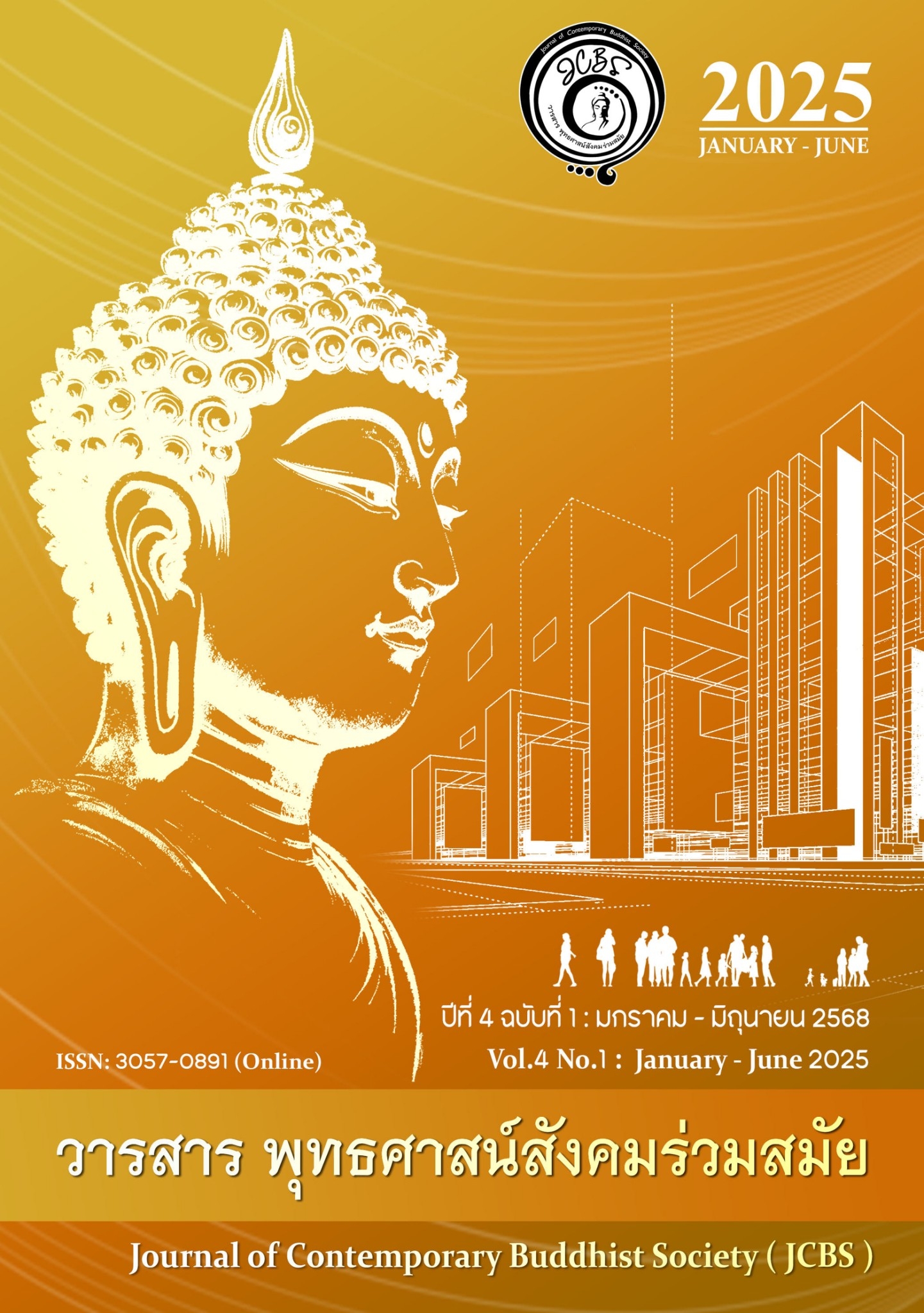BUDDHIST-BASED RECREATION: A NEW DIMENSION IN ENHANCING THE QUALITY OF LIFE OF THAI ELDERLY
Keywords:
buddhist principles, recreation, older adults, well-being, quality of lifeAbstract
Thailand has officially entered an aging society, making the promotion of older adults’ quality of life a critical challenge. Spiritual and cultural dimensions, though essential, are often overlooked, despite Buddhism being a core foundation of Thai life and especially significant for older adults who deeply value religious teachings and practices. However, the integration of Buddhist principles into recreational activities remains underdeveloped and lacks systematic study, even though it holds high potential to enhance holistic well-being in physical, mental, social, and intellectual dimensions. This article aims to synthesize and propose the concept of “Buddhist recreation” as an integrative framework that merges Dhamma with recreational activities to enhance the quality of life among the elderly in Thai society. Through literature review and case studies, such as the Silp Song Tham project, the Buddha Art Gallery, and community-based programs, the article highlights practical applications of Buddhist teachings, including the Four Noble Truths, the Four Divine States (Brahmaviharas), and the Four Bases of Social Solidarity (Sangahavatthu) within recreational activities encompassing art, culture, and social participation. The article also analyzes key success factors, such as leadership development, network building, and the design of responsive and inclusive activities. Furthermore, five policy recommendations are proposed, including the integration of Dhamma into recreation, the development of community support systems, intersectoral collaboration, the promotion of innovation and research, and the cultivation of social awareness. These proposals have the potential not only to guide the implementation of Buddhist recreation at the local level but also to contribute to national frameworks that support the sustainable development of elderly well-being in Thailand.
References
Augustine (1991). Confessions. Trans, Henry Chadwick, Oxford University Press.
Colli, Ilario (2022). “Descartes' Cogito and the Birth of the Modern Self.” Ilario Colli, ilariocolli.com/articles/descartes-cogito-and-the-birth-of-the-modern-self.
Collins, Steven (1998). Selfless Persons: Imagery and Thought in Theravada Buddhism. Cambridge University Press.
Descartes, René (1996). Meditations on First Philosophy. Translated by John Cottingham, Cambridge University Press.p 33-34.
Gethin, Rupert (1998). The Foundations of Buddhism. Oxford University Press.
Gombrich, Richard (2006). What the Buddha Thought. Equinox Publishing Ltd.
Goodman, Charles (2019). Consequentialism: A Very Short Introduction. Oxford University Press.
Guenther, Herbert V (1974). The Tantric View of Life. Shambhala Publications.
Gunaratana, Henepola (2011). Mindfulness in Plain English. Wisdom Publications,.
Harvey, Peter (1990). An Introduction to Buddhism: Teachings, History and Practices. Cambridge University Press.
Hasenkamp et al(2022). "The Nature of Self Perspectives from Buddhism and Cognitive Science." Mind & Life Institute. https://www.mindandlife.org/insight/the-nature-of-self/.
Hume, David (2000). A Treatise of Human Nature. Edited by L.A. Skelton et al., Oxford University Press: Clarendon Press.
Kant, Immanuel (1997). Groundwork for the Metaphysics of Morals. Translated by Mary Gregor Cambridge University Press: Cambridge Texts in Philosophy.
Kenny, Anthony(2006). Descartes: A Study of His Philosophy. Random House.
Sangiacomo, Andrea. “Cogito, Sum Objectum: Descartes in a Buddhist Perspective.” 1 Feb. https://www.rug.nl/filosofie/organization/departments/history/gcmemt/blog/cogito_-sum-objectum_-descartes-in-a-buddhist-perspective?lang=en2019.
Nāgārjuna (1986). Madhyamaka Karika. Translated by David Kalupahana, State University of New York Press.
Siderits Mark et al (2007)., "Buddhism as Philosophy: An Introduction." Hackett Publishing Company.
Suzuki D.T.(1970), Zen Mind Beginner's Mind. Weatherhill Inc.
Thich Nhat Hanh (1999). The Heart of the Buddha's Teaching: Transforming Suffering into Peace, Joy, and Liberation. Broadway Books.
Wynne, Alexander (2002). The Buddha’s Philosophy: A Study in Early Buddhism. RoutledgeCurzon Press.
Descartes, R. (1996). Meditations on First Philosophy (J. Cottingham, Trans.). Cambridge University Press. (Original work published 1641)
Bhikkhu Ñāṇamoli, & Bodhi, B. (2001). The Middle Length Discourses of the Buddha: A Translation of the Majjhima Nikāya. Wisdom Publications.
Nāgārjuna. (1995). The Fundamental Wisdom of the Middle Way: Nāgārjuna's Mūlamadhyamakakārikā (J. L. Garfield, Trans.). Oxford University Press.
Downloads
Published
How to Cite
Issue
Section
License
Copyright (c) 2025 Journal of Contemporary Buddhist Society = JCBS

This work is licensed under a Creative Commons Attribution-NonCommercial-NoDerivatives 4.0 International License.





